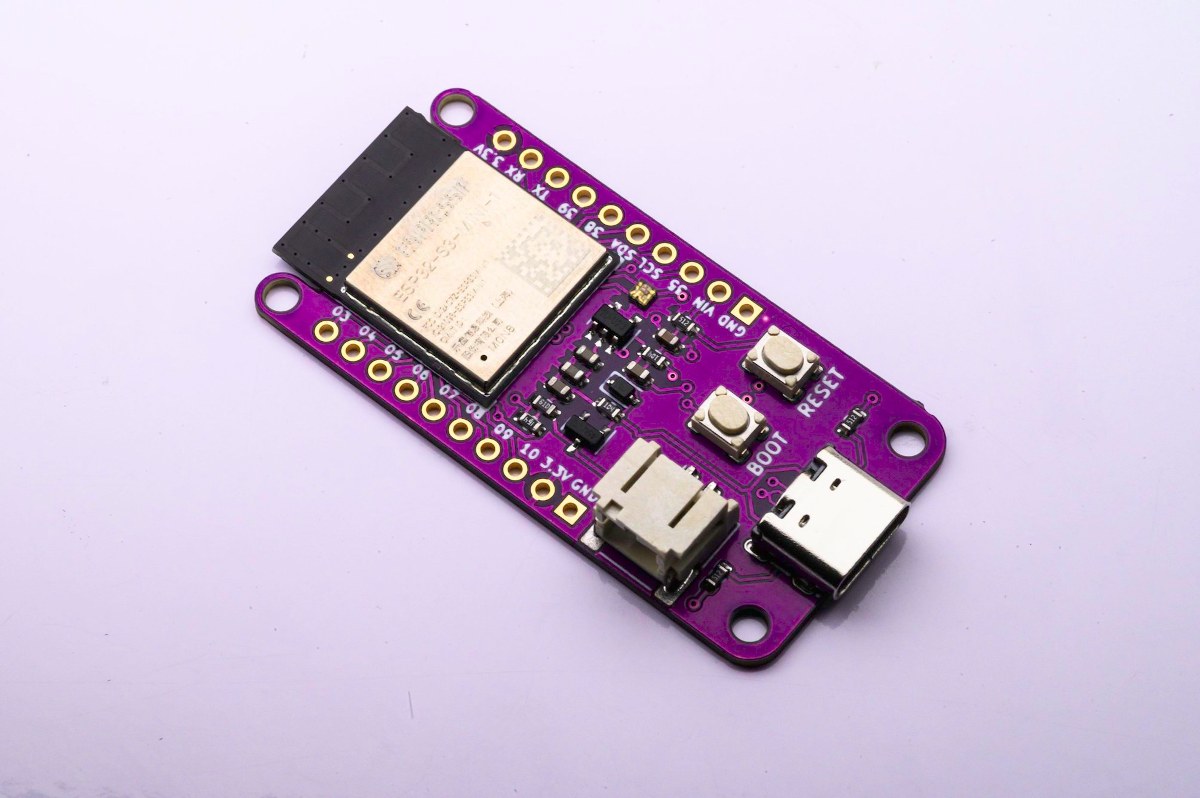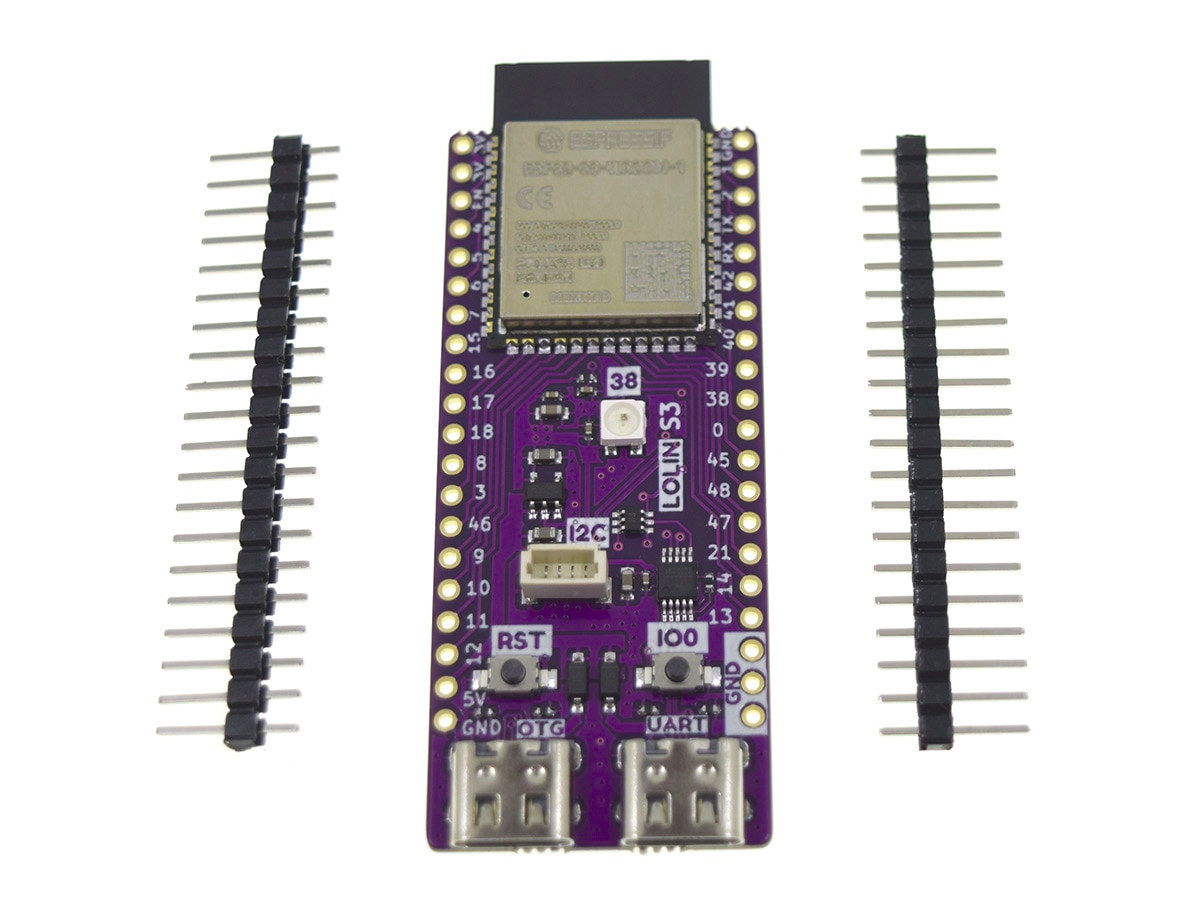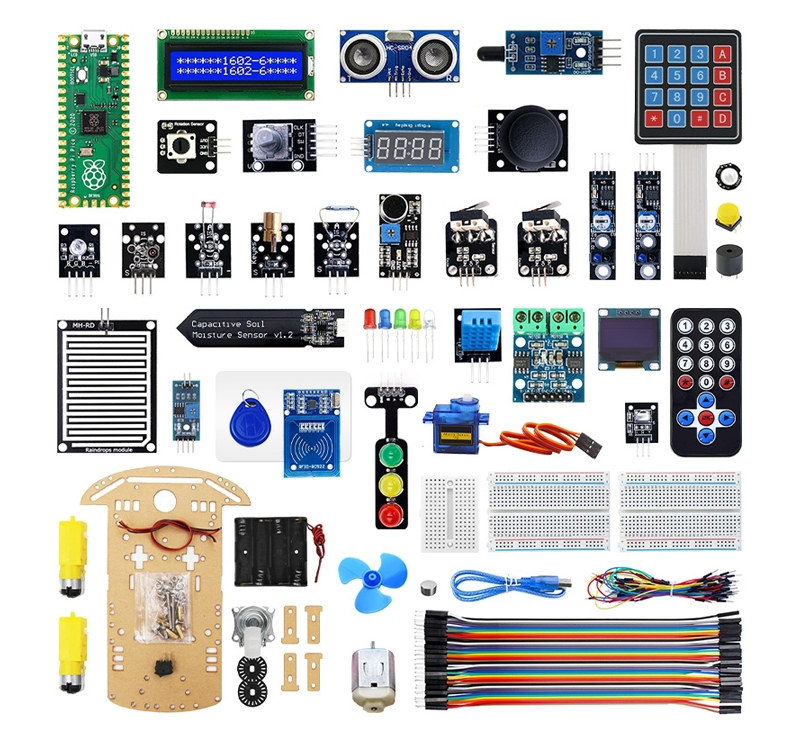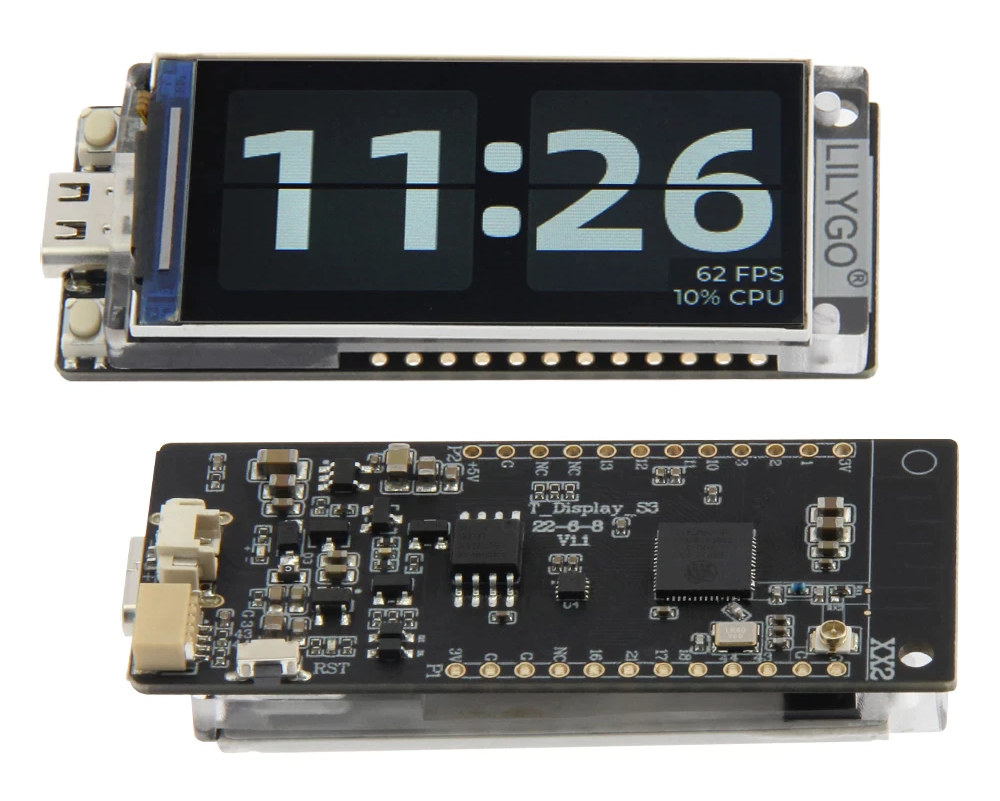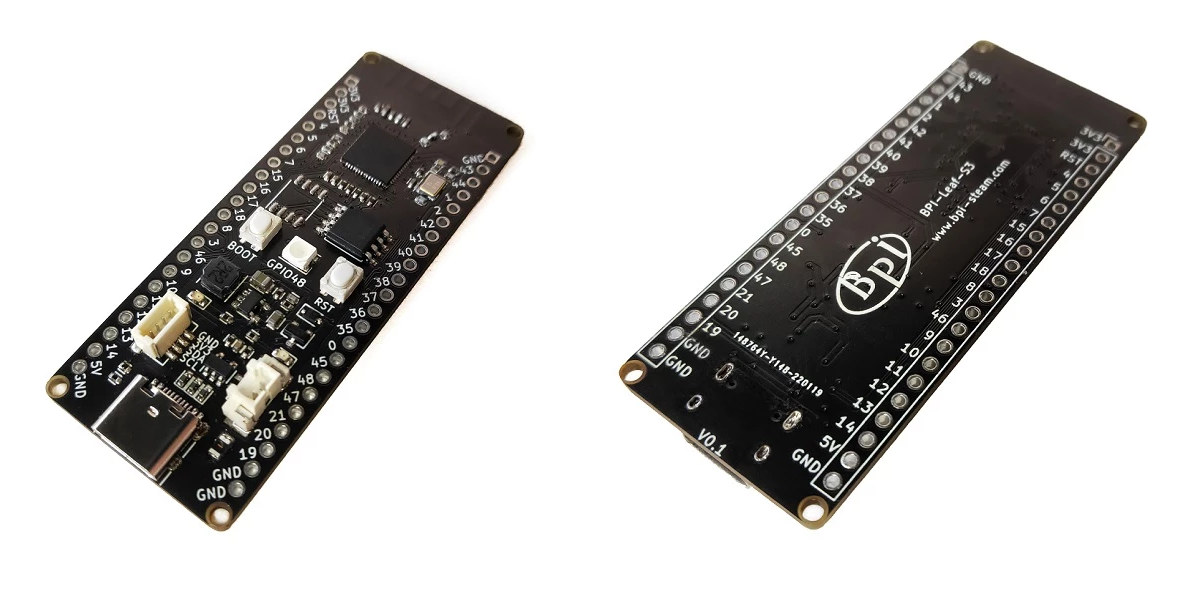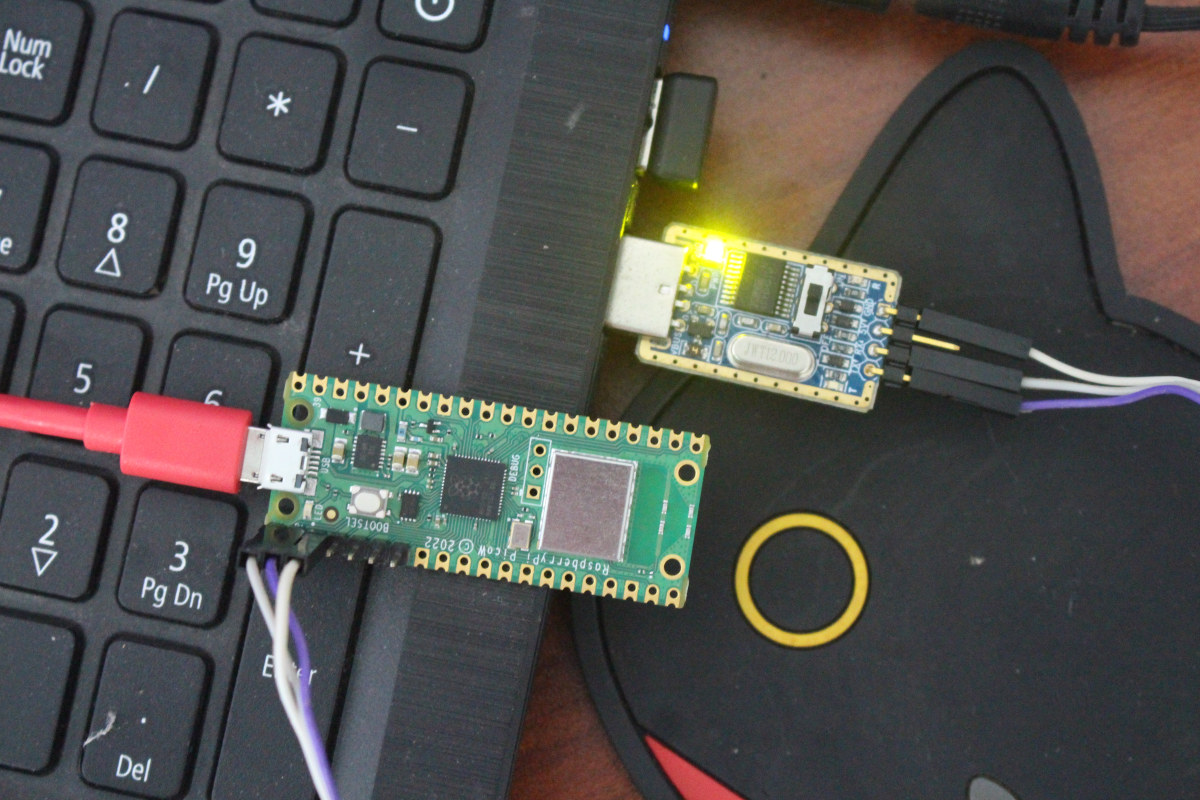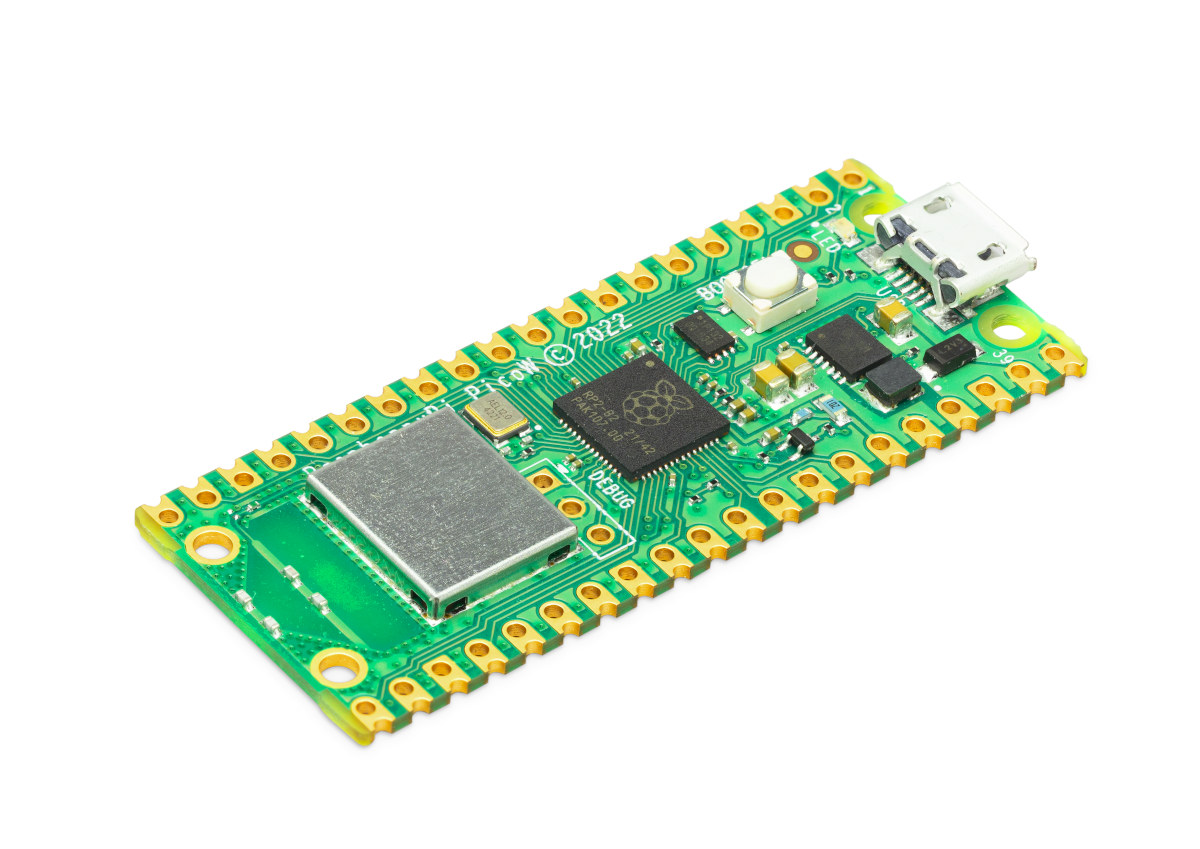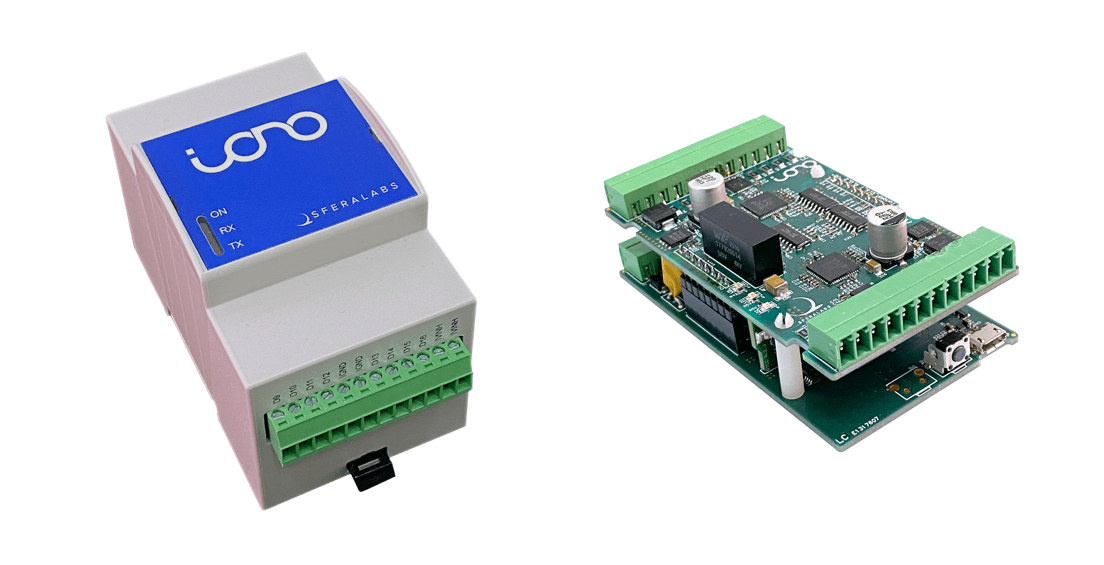Smart Bee Designs’ Bee S3 is an ultra-low-power development board based on Espressif ESP32-S3 WiFi & Bluetooth microcontroller that consumes less than 20 uA in deep sleep mode allowing the board to theoretically last over 5 years under specific conditions. The board provides WiFi 4 and Bluetooth 5 LE connectivity, features a battery voltage monitoring circuitry to check the battery charge level, a USB Type-C port for power and programming, plus 20 through holes for extensions such as connecting sensors, and so on. Bee S3 specifications: Wireless module – Espressif Systems ESP32-S3-MINI-1 module (PDF datasheet) with ESP32-S3 dual-core Xtensa LX7 processor with WiFi 4 and Bluetooth 5.0 connectivity, 4MB or 8MB QSPI flash, PCB antenna USB – 1x USB Type-C port for power and programming Expansion – 2x 10-pin headers with up to 15x GPIO, 8x ADC, touch support, I2C, SPI, UART, 5V In/out, 3.3V out, and GND Misc – […]
$7 Lolin S3 ESP32-S3 board ships with MicroPython firmware
Lolin S3 is the first ESP32-S3 board from the company, but instead of using the more compact D1 mini form factor, the board features a longer design with two rows of 20 pins offering up to 31 GPIOs. Based on ESP32-S3-WROOM-1 module, the board features 16MB QSPI flash, 8MB SPRAM, two USB Type-C OTG and UART ports, a Lolin I2C port, an RGB LED, as well as Reset and user buttons. Lolin S3 specifications: Wireless module – ESP32-S3-WROOM-1 module with: Espressif Systems ESP32-S3 dual-core Tensilica LX7 @ up to 240 MHz with vector instructions for AI acceleration, 512KB RAM, 2.4 GHz WiFi 4 and Bluetooth 5.0 LE with support for long-range, up to 2Mbps data rate, mesh networking 16MB QSPI flash 8MB PSRAM PCB antenna USB – 2x USB Type-C ports, one OTG port, one UART port for programming and debugging Expansion 2x 20-pin headers with up to 31x GPIO, […]
Elecrow’s Raspberry Pi Pico Advanced Kit ships with 32 electronics modules, 32 project tutorials
We’ve just reviewed the Raspberry Pi 4-powered CrowPi L laptop and Crowtail Starter kit used to teach programming and electronics, but Elecrow has now launched the “Raspberry Pi Pico Advanced Kit” with 32 electronics modules, a smart kit car, and 32 tutorials that should be a more affordable way of teaching electronics and programming. However, it does so in a different way, as instead of using visual programming and Python, the Raspberry Pi Pico Advanced Kit’s lessons rely on MicroPython, and the projects are different with for example parts to build an obstacle avoidance, line tracking, or remote controlled car. Package content: Optional Raspberry Pi Pico board with Raspberry Pi RP2040 dual-core Cortex-M0+ microcontroller Breadboards 2x 400 holes solderless breadboards 1x 170 holes solderless breadboard Display modules 1602 LCD display module (Blue) OLED module 4-bit digital LED display module Lights 10x 5mm LEDs in green, red, blue, yellow, and […]
T-Display-S3 board offers ESP32-S3 WiSoC, 1.9-inch color LCD, and LiPo battery support
LilyGO T-Display-S3 is an ESP32-S3 WiFi and Bluetooth LE IoT development board with a 1.9-inch color LCD and support for LiPo batteries that follows the company’s T-QT ESP32-S3 board with a tiny 0.85-inch display introduced earlier this month. The new board offers the same layout as the previous T-Display RP2040 or ES32 boards, but the 1.14-inch display has been replaced with a larger 1.9-inch display that covers most of the board, and thanks to the ESP32-S3 microcontroller, gains proper Bluetooth 5.0 support, as well as vector instructions for AI acceleration. T-Display-S3 specifications: Wireless MCU – Espressif Systems ESP32-S3R8 dual-core Tensilica LX7 @ up to 240 MHz with vector instructions for AI acceleration, 512KB RAM, 8MB PSRAM, wireless connectivity Storage – 16MB flash Connectivity via ESP32-S3 2.4 GHz 802.11 b/g/n Wi-Fi 4 with 40 MHz bandwidth support Bluetooth Low Energy (BLE) 5.0 connectivity with long-range support, up to 2Mbps data rate. […]
Banana Pi BPI-Leaf-S3 ESP32-S3 board launched for $7.5
Banana Pi is better known for its Arm Linux boards, but the company’s Banana Pi BPI-Leaf-S3 board features Espressif ESP32-S3 dual-core WiFi & BLE AI processor, with compatibility with ESP32-S3-DevKitC-1 minus a built-in USB to TTL chip, and added support for battery and an I2C connector. Banana Pi Leaf (BPI-Leaf-S3) specifications: Wireless MCU – Espressif Systems ESP32-S3 dual-core Tensilica LX7 @ up to 240 MHz with vector instructions for AI acceleration, 512KB RAM, wireless connectivity Storage/Memory – 8MB flash, 2MB SPRAM Connectivity via ESP32-S3 2.4 GHz 802.11 b/g/n Wi-Fi 4 with 40 MHz bandwidth support Bluetooth Low Energy (BLE) 5.0 and Mesh connectivity with long-range support, up to 2Mbps data rate. PCB antenna USB – 1x USB Type-C OTG port for power and programming Expansion 2x 22-pin headers with up to 36x GPIO, 2x 12-bit ADC, 14x touch sensor inputs, 4x SPI, 2x I2C, 2x I2S, LCD interface, DVP camera […]
Getting started with WiFi on Raspberry Pi Pico W board
Raspberry Pi Trading announced the Raspberry Pi Pico W board basically based on the same design as the original Raspberry Pi Pico board with RP2040 dual-core Cortex-M0+ microcontroller but adding a wireless module with WiFi 4 and Bluetooth LE 5.2, although the latter is not enabled on the board at this time. The company sent me a sample for review/evaluation, and I’ll focus on the WiFi part since the Raspberry Pi Pico W supports the same MicroPython and C/C++ SDKs as for the Raspberry Pi Pico board plus additional APIs for wireless connectivity. Raspberry Pi Pico W unboxing The board I received was cut from a 480-unit reel, and I also got a one-meter long micro USB to USB cable, which should probably not be included by default for people ordering the $6 board. Just like its predecessor, the board is tiny, and The pinout is the same as the […]
Raspberry Pi Pico W – A $6 Raspberry Pi Pico board with WiFi 4
I was expecting the next official Raspberry Pi board to be either an update of Raspberry Pico with WiFi and Bluetooth or with a machine learning accelerator and the new $6 Raspberry Pi Pico W delivers that wish through the addition of 2.4GHz WiFi 4. Having said that, I was actually expecting a competitor to ESP8266 or ESP32 with a new Raspberry Pi wireless microcontroller, but it did quite happen that way as the Raspberry Pi Pico W features the same Raspberry Pi RP2040 dual-core Cortex-M0+ microcontroller found in Raspberry Pi Pico board coupled with an Infineon CYW43439 chip that’s supposed to support both 2.4 GHz WiFi 4 and Bluetooth LE 5.2. Bluetooth is not enabled right now, but may be at a later stage. Raspberry Pi Pico W specifications: MCU – Raspberry Pi RP2040 dual-core Cortex-M0+ microcontroller @ 133 MHz with 264KB SRAM Storage – 2MB QSPI flash Connectivity […]
Iono RP D16 industrial IO module features Raspberry Pi RP2040 MCU
Sfera Labs has launched another Raspberry Pi RP2040-based hardware platform with the Iono RP D16 industrial IO module following the Exo Sense RP multi-sensor module we covered last month. The Iono RP D16 module provides sixteen digital 24V I/O lines, an RS-485 serial interface, a wide range 12-28V power supply input, and its DIN-rail case enables installation in electrical cabinets and automation control systems. Iono RP D16 specifications: MCU – Raspberry Pi RP2040 dual-core Arm Cortex-M0+ microcontroller @ 133MHz with 264kB on-chip SRAM Storage – 16MB SPI flash Inputs/Outputs via terminal blocks Up to 16x 24V 640mA outputs driven by high-side switches that can also be configured as push-pull drivers for high-speed switching (via MAX14912 chips) Up to 16x 24V IEC 61131-2 compliant current-sinking inputs (via MAX22190 chips) 4x TTL level I/Os (1-Wire, I2C, Wiegand support) Serial – RS-485 interface to the RP2040 serial lines via terminal block with electrostatic […]


